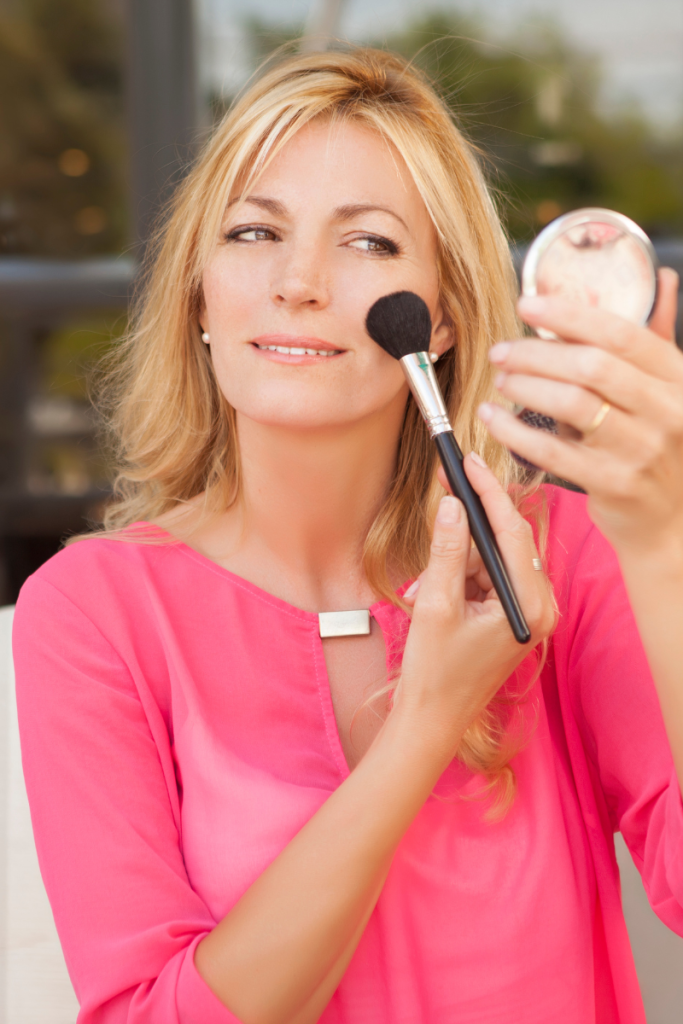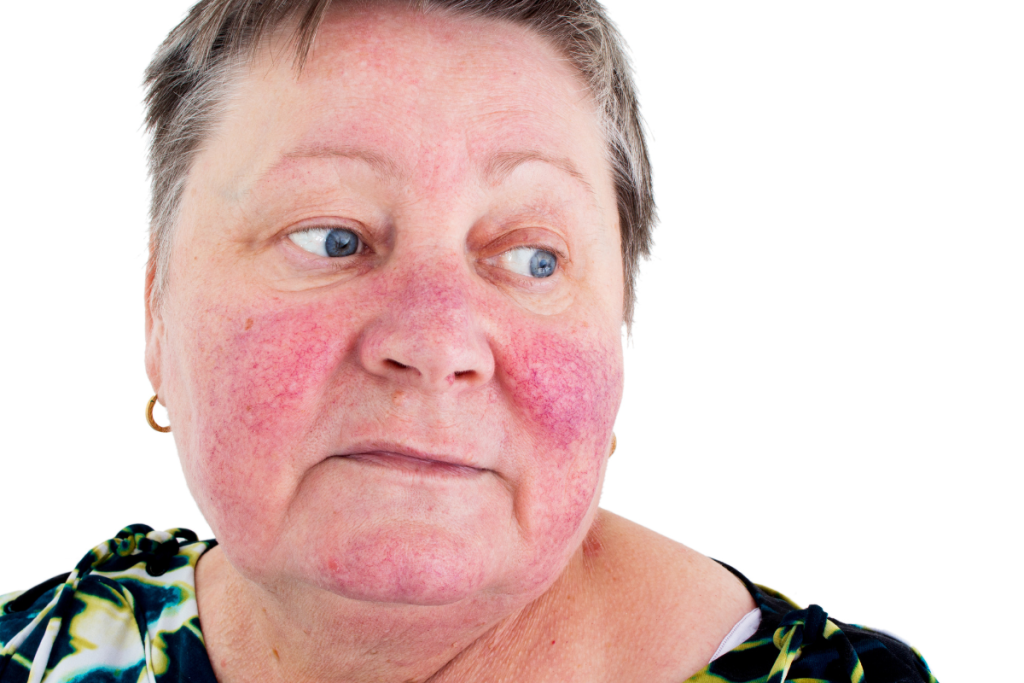Rosacea is more than just a skin condition; it’s a daily journey for more than three million Canadians, with a notable prevalence among women. This chronic issue can transform the face with its signature redness, visible blood vessels, and sometimes, acne-like bumps. But what exactly is rosacea, and how can those living with it find some much-needed relief?
Living with Rosacea: More Than Skin Deep
First off, let’s clear the air: rosacea is not acne. Though often mistaken for each other, rosacea is an inflammatory skin condition primarily affecting the cheeks and nose. It’s characterized by those tell-tale signs of redness and sometimes warm, rash-like appearances. But the real kicker? The emotional toll it takes on those affected. The constant battle with flare-ups can lead to social anxiety, body image issues, and a significant dip in quality of life.

Why Women? The Hormonal Connection
It’s a curious fact that rosacea is more commonly diagnosed in women. Could our skincare routines be to blame? Possibly. But it’s not just about the products we use. Hormonal fluctuations play a significant role, too. From menstrual cycles to menopause, these changes can trigger or exacerbate rosacea symptoms, making it a condition that’s intimately tied to our body’s internal rhythms.

The Emotional Toll: More Than Just Skin Deep
Living with rosacea isn’t just about dealing with physical symptoms. The emotional impact is profound. The persistent redness and bumps can lead to a retreat from social scenes, a decline in self-esteem, and an increase in anxiety and depression. It’s a cycle that can feel endless, especially when misdiagnoses lead to ineffective treatments.

Finding Relief: A Holistic Approach
So, how do we break this cycle? It starts with a proper diagnosis, distinguishing rosacea from other skin conditions like acne. From there, a tailored skincare regimen that includes gentle washing, moisturizing, and diligent SPF application is key, as sun exposure can be a significant trigger.

But living with rosacea also means playing detective with your lifestyle. Identifying personal triggers, whether it’s a glass of wine, a spicy meal, or even a session of hot yoga, can help in managing flare-ups. Stress management, too, plays a crucial role. Finding what soothes your mind can, in turn, soothe your skin.
Chronic, But Manageable
Perhaps the most crucial thing to understand about rosacea is that it’s chronic. There’s no “cure,” but with the right strategies, it can be managed. Medications, both oral and topical, can be tailored to your needs, offering relief during flare-ups and helping maintain a clearer complexion.

Empower Yourself with Knowledge
In the age of misinformation, finding credible, reliable information is more important than ever. For those living with rosacea, free resources like Care to Know offer a beacon of hope. With expert input and regularly updated information, it’s a place to empower yourself in your journey with rosacea. Visit caretoknow.ca to register for the latest health information on a variety of topics delivered to your inbox.

Living with Rosacea: A Path Forward
Rosacea may be a chronic companion, but it doesn’t have to define your life. With the right knowledge, support, and management strategies, you can navigate the challenges of rosacea and embrace life with confidence. Remember, your skin doesn’t define your worth, and with each step forward, you’re not just managing rosacea; you’re reclaiming your life.

Dr. Christine Palmay is a family physician practising in Midtown Toronto and a regular contributor to caretoknow.ca
For more from Care to Know here on What She Said please click here.